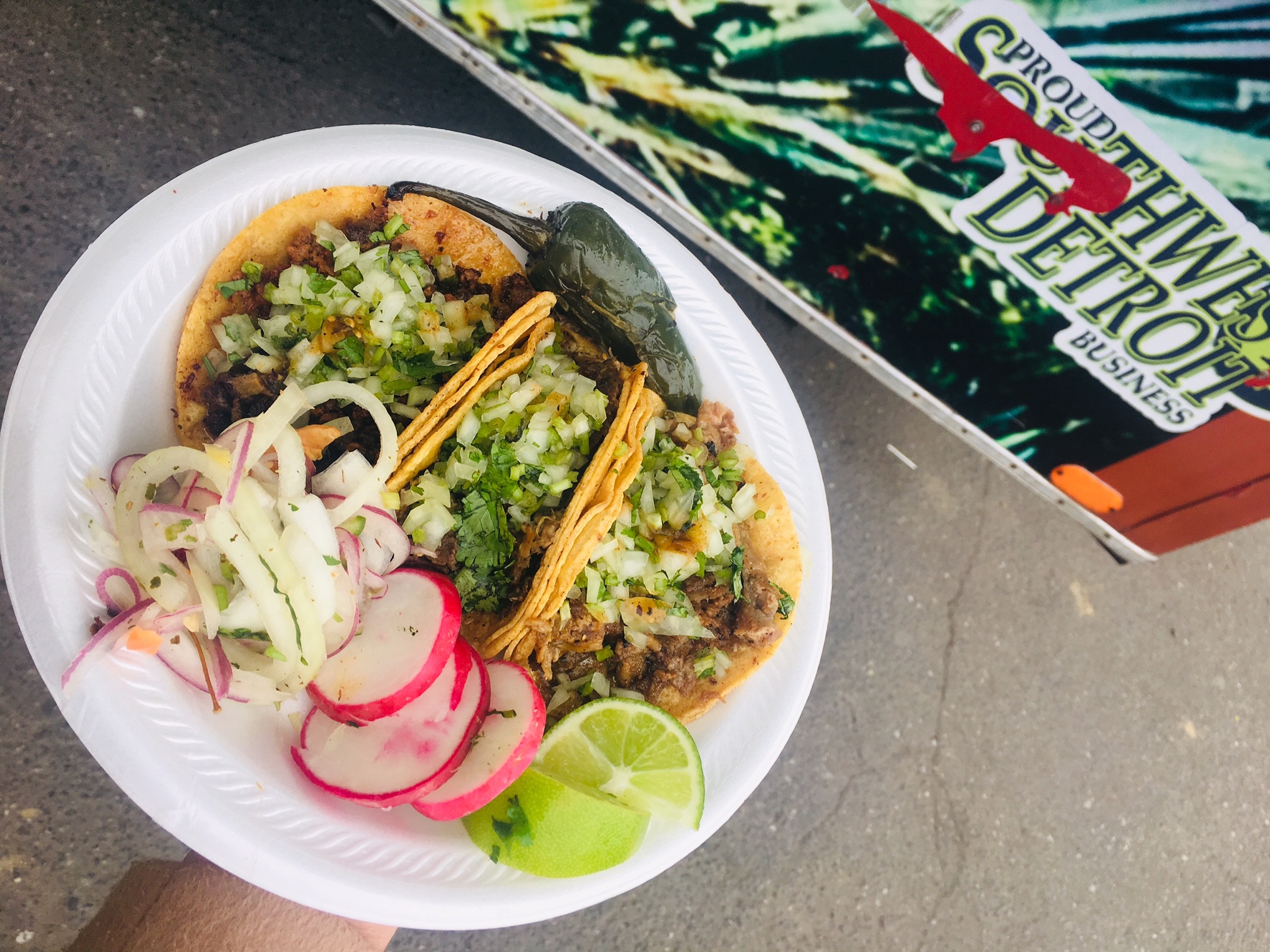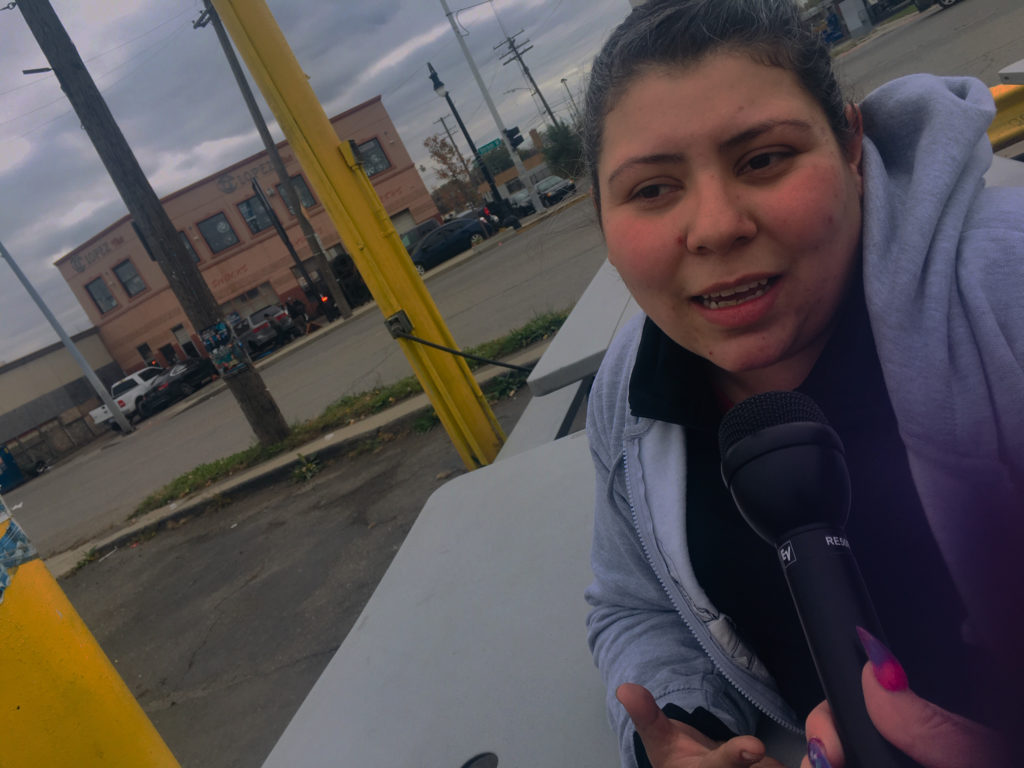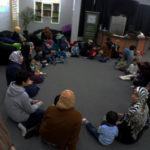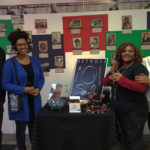
Tony Lopez (right). (Photo: Serena Maria Daniels)
I used to assume that being a radio or TV reporter — with clunky, intrusive audio or video equipment in tow — would create a barrier to doing the job. A print reporter, with little more than a pen and notebook, could get in there in an intimate way and give the subject room to talk without the intimidation that they were being recorded.
In the first month or so of the Feet in 2 Worlds food journalism fellowship that I’m part of, I found the opposite to be the case. Aside from one source, who did not want to be interviewed at all, everyone else was not only willing to have a microphone shoved in front of their face, but they were more than thrilled to be able to tell their story on the record.
It reinforces my notion all along that my community is hungry for media representation, to have their stories told and celebrated on the mainstream airwaves.
Part of a series of essays by journalists in the Feet in 2 Worlds food journalism fellowship at WDET.
It hit me most profoundly when I stopped over at one of El Parian’s taco trucks by chance. I had just finished conducting an interview with Tony Lopez of Lopez Tires across the street. When the interview wrapped up, I walked over to the loncheria for a snack and to try to collect some b-roll from the surrounding traffic. Working the truck was Wicho Diaz, husband of my primary source, Nancy. I tried in my broken Spanish to explain what I was doing, and he tried in his limited English to understand what I was saying. He called Nancy right away and told her that that reporter was here asking questions and that she should come through.

El Parian tacos
Within a few minutes, she pulled up, gave me a warm hug and apologized profusely for not getting back to me when I tried texting her earlier in the week.
“I think what you’re doing is important,” she relayed to me.
We went on to go over some of the questions I had missed in our previous interview, but afterward I took the conversation into a direction that I knew would make both of us feel uncomfortable: the current administration.
Was this anti-immigrant, anti-Latino political climate bad for business?
For the business? No, she said. But it was taking a toll on her emotionally. Out of respect, I’m not sure I want to share all that she said to me that day, but what I will say is that letting it out seemed to be therapeutic.
For the both of us.
All too often, the focus of media is through the lens of whiteness: how are working-class whites getting along in the age of Trump? Are whites going to be in the minority soon? How white women voters elected our current president.
If Latinos or other people of color are asked for their views in the media, it’s all-too-often from the perspective of victimhood or as a sidebar to a so-called larger issue.
The problem with this approach (OK, there are too many problems with this to name in a single blog post), but it ignores how the voices of brown and black people are shaping all facets of society. Nancy’s concerns over whether loved ones will be deported is just as important as the white factory workers who are contending with being in the minority on the line.
This fellowship has given Nancy and others the opportunity to be the center of focus.
Support for the fellowship comes from the John S. and James L. Knight Foundation, the Michigan Council of Arts and Cultural Affairs (MCACA) and through matching gifts from station donors, The International Association of Culinary Professionals’ foundation, The Culinary Trust, and its Growing Leaders Food Writing program. The Food Writing Program is funded with the support of the Boston Foundation.
Fi2W is supported by the David and Katherine Moore Family Foundation, the Ralph E. Odgen Foundation, The Ford Foundation, the John S. and James L. Knight Foundation, The J.M. Kaplan Fund, an anonymous donor and readers like you.




